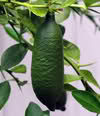| Author |
Message |
MarcV
Moderator


Joined: 03 Mar 2010
Posts: 1495
Location: Schoten (Antwerp), Belgium
|
| Posted: Sun 25 Nov, 2012 6:33 am |
|
Whoa!  Eric (eb0079) has done a magnificent job listing all those varieties of yuzu! Eric (eb0079) has done a magnificent job listing all those varieties of yuzu! 
I see there's also a discussion going on about where to collect all the info. Why not join all this invaluable information with the Citrus Pages web site?
_________________
- Marc
Join my CitrusGrowers Facebook group! |
|
| Back to top |
|
 |
Sylvain
Site Admin


Joined: 16 Nov 2007
Posts: 790
Location: Bergerac, France.
|
| Posted: Sun 25 Nov, 2012 6:48 am |
|
| Quote: | | Why not join all this invaluable information with the Citrus Pages web site? |
Very good idea. This could be an answer. |
|
| Back to top |
|
 |
Millet
Citruholic


Joined: 13 Nov 2005
Posts: 6657
Location: Colorado
|
| Posted: Sun 25 Nov, 2012 1:55 pm |
|
Still the question, where or how did the other "Yuzus" come about --Man, Nature?? Are they "real" Yuzu, or a cross of some sort. If they are a cross (natural or other) then they are not a Yuzu, but a totally new variety. If a sport or mutation then it is a Yuzu strain. Is there a known answer?- Millet |
|
| Back to top |
|
 |
Sanguinello
Gest
|
| Posted: Sun 25 Nov, 2012 2:03 pm |
|
As I said before, the origin is unknown ...
It is just known that YUZU, like almost everything in Japan, has it´s origin in China.
Like 400 years ago they are documented first.
That Variations happened by sowing the seeds either by natural variations, adepting to different climate and soils or just mutations.
Besides I would be grateful to get seeds.
I have a seedling of a normal Yuzu only and liked other sorts like YUKO. |
|
| Back to top |
|
 |
Laaz
Site Owner


Joined: 12 Nov 2005
Posts: 5671
Location: Dorchester County, South Carolina
|
| Posted: Sun 25 Nov, 2012 2:04 pm |
|
Yuzu itself is a hybrid, as is Sudachi.
_________________
Wal-Mart a great place to buy cheap plastic crap ! http://walmartwatch.com/ ...
 |
|
| Back to top |
|
 |
Sylvain
Site Admin


Joined: 16 Nov 2007
Posts: 790
Location: Bergerac, France.
|
| Posted: Sun 25 Nov, 2012 3:21 pm |
|
I cannot answer the question how it appeared, but this cultivars are very stable. For example it is very easy to differanciate a regular yusu from a hana yuzu. |
|
| Back to top |
|
 |
Millet
Citruholic


Joined: 13 Nov 2005
Posts: 6657
Location: Colorado
|
| Posted: Sun 25 Nov, 2012 4:35 pm |
|
Silvain, your above post is getting closer to an answer. As it is easy to quickly recognize the difference between a "real" Yuzu and a Hana, then it could be a cross (therefor a stand alone never seen before new and different fruit).
Sanguinello, do you have anything to support that Hana cane from a chance seedling of a "real" Yuzu? In the end the answer might be lost in history. - Millet |
|
| Back to top |
|
 |
Sanguinello
Gest
|
| Posted: Sun 25 Nov, 2012 4:49 pm |
|
Hana Yuzu is a quite young breed, compared to normal Yuzu.
If it is a cross or seedling is not known.
As Laaz already said, originally Yuzu was thought to be an own species, but know thought to be a hybrid ... |
|
| Back to top |
|
 |















